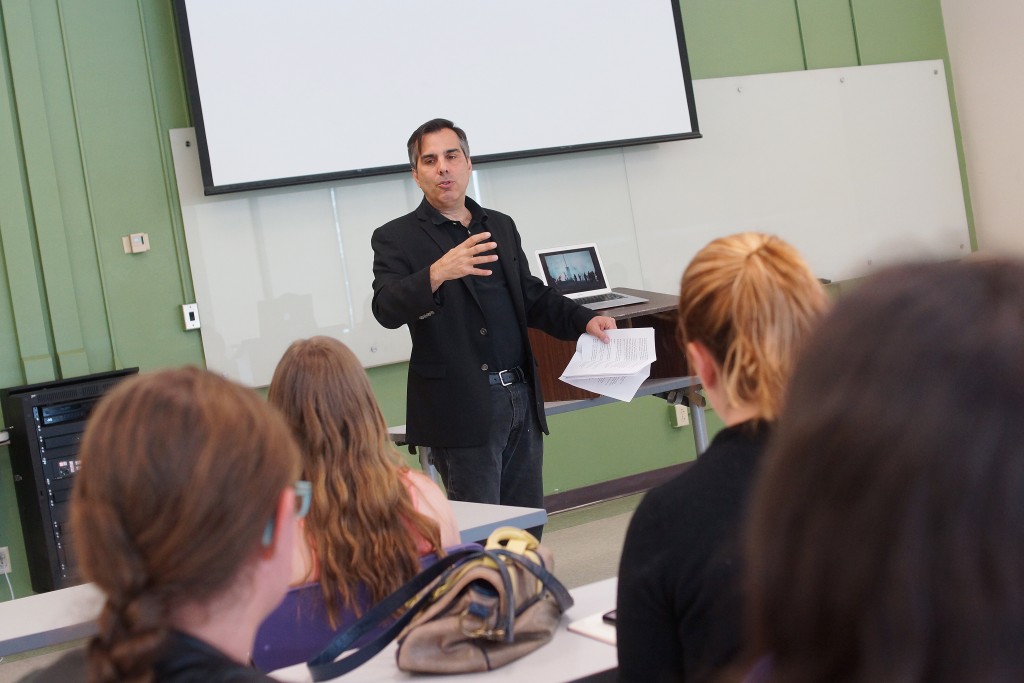
From growing up in the Bronx to traveling the world as a foreign correspondent, the New York Times’ international managing editor, Michael Slackman, has been to a lot of places. He came to Binghamton University’s Old Union on Sunday to tell students that they can succeed as well.
Slackman said he always knew that he wanted to pursue a career in journalism. After setting a goal to work at the New York Times, he took advantage of every opportunity presented to him in order to become the best writer he could be.
He said he was able to realize his dreams by constantly working to improve himself. Slackman explained that practicing journalism not only helped him grow as a writer but also increased his name recognition. Initially doubting himself because of his humble beginnings at Michigan State University, Slackman’s constant efforts have paid off. When Slackman was presented with the chance to travel the world as a foreign correspondent for the New York Times, he jumped at the chance, citing that all he wanted to do was learn about the world and expose the truth.
He covered stories around the world as he traveled with his wife and son, visiting the Middle East, Central Asia and Russia. He lived in Cairo for eight years and spent time in Iran, a country he said is most misunderstood by Americans. He also recounted stories of death, violence and injustice he had observed abroad.
“Bearing witness is a very dangerous thing,” Slackman said. “Journalists need to take proper precautions because it’s not always safe out on the field. But it’s most pertinent to tell the truth about what’s actually happening in the world.”
In 2011, Slackman advanced from foreign correspondent to his current role as the New York Times’ international managing editor. In this position, he has correspondents travel to a country to investigate and report back and reads every story in the international section. He said he enjoys the job because it gives him a broader sense of the world.
Amanda Baker, the Student Association (SA) vice president for academic affairs, invited Slackman to BU as part of the University’s New York Times program. Primarily known for bringing free copies of the newspaper to campus every weekday, but also serves as a way for colleges to tap into the paper’s breadth of knowledge through a speaker series. Baker said she wanted to expand the scope of the program and involve more students interested in journalism.
“The program board talks a lot about international things and advancement of people’s careers,” said Baker, a senior double-majoring in mathematics and history. “Because that’s where Slackman excels, he was the best choice to come talk to students.”
Slackman said he considers himself lucky that he distinguished specific career goals from a young age, but encouraged students to stay determined even in the face of an uncertain future.
“Follow your heart,” Slackman said. “Don’t let anyone tell you who you are or who you’re going to be, ever. Don’t worry about the platform or the audience; you’ll find satisfaction and hone your skills along the way.”


